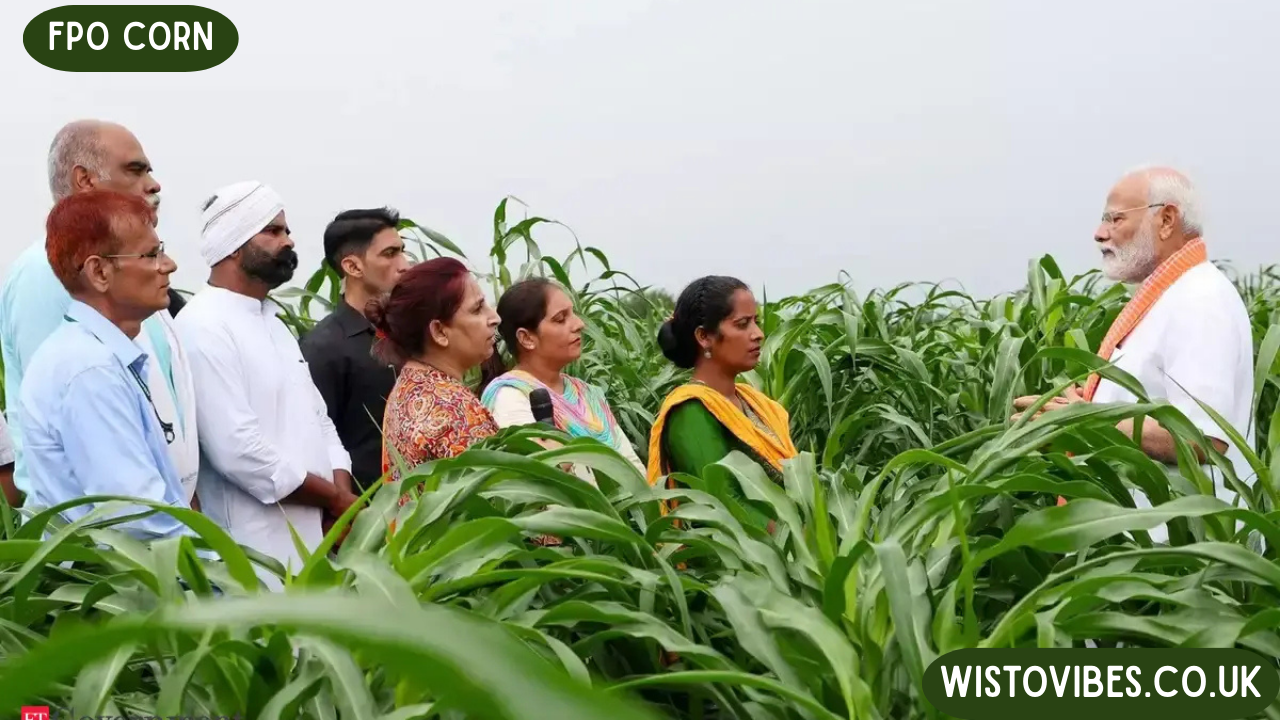Introduction: What is FPO Corn?
FPO Corn, a term that brings together the concepts of Farmer Producer Organizations (FPOs) and corn cultivation, is gaining significant attention in the agricultural landscape. With India being one of the major producers of corn (maize) and smallholder farmers making up a large portion of the agricultural community, the role of FPOs has become increasingly vital in transforming the corn value chain. FPO Corn refers to the collective cultivation, processing, and marketing of corn by Farmer Producer Organizations, empowering farmers through economies of scale, better market access, and enhanced incomes. But what exactly does FPO corn mean for farmers, markets, and the larger agricultural ecosystem?
Understanding the Concept of FPOs and Their Role in Corn Cultivation
Farmer Producer Organizations are registered entities formed by groups of farmers, often with the support of government schemes or NGOs, aimed at improving the bargaining power and profitability of the members. In the context of corn, FPOs help smallholder farmers overcome the challenges of fragmentation, lack of technical knowledge, and limited access to modern inputs.
FPOs engaged in corn cultivation can facilitate collective purchasing of high-quality seeds, fertilizers, and pesticides at discounted rates. Moreover, these organizations often work with agricultural experts to introduce modern farming practices that improve yield and reduce costs. The technical support provided by FPOs can be instrumental in converting traditional methods into more efficient, sustainable practices.
FPO Corn and Its Economic Significance
The economic potential of FPO corn is substantial. Corn is a versatile crop used in food, feed, industrial starches, and biofuels. FPOs can aggregate produce and negotiate better prices with buyers such as feed manufacturers, ethanol plants, and food processing companies. By cutting out middlemen and establishing direct links with end users, FPOs enhance profit margins for farmers.
Furthermore, FPOs can invest in primary processing infrastructure like shelling, drying, grading, and packaging, thereby improving the quality and marketability of the corn. Value addition at the farm gate creates employment opportunities and boosts local economies. With increasing demand for corn both domestically and internationally, FPOs can strategically position themselves as key players in the agri-business sector.
Empowering Small Farmers Through FPO Corn
One of the primary motivations behind the formation of FPOs is to empower small and marginal farmers. In the case of FPO corn, this empowerment is achieved by creating an organized framework where farmers have a collective voice and shared responsibility. Small farmers who may otherwise struggle to access finance, insurance, or technical services can do so more easily through their FPO.
Banks and financial institutions are more willing to lend to FPOs due to reduced credit risk and better documentation. This financial empowerment enables farmers to invest in quality inputs and machinery, leading to better productivity. Additionally, FPOs often collaborate with extension services and agronomists who provide training on crop management, pest control, post-harvest techniques, and climate-resilient agriculture.
FPO Corn and Market Linkages
One of the key challenges faced by individual corn farmers is the lack of reliable market access. FPOs solve this by building strong market linkages with buyers across the value chain. By aggregating corn at scale, FPOs attract large institutional buyers who prefer dealing with a single entity rather than multiple small suppliers.
Many FPOs also explore e-marketing platforms and digital marketplaces to sell FPO corn, thus increasing price transparency and reducing exploitation. Some FPOs enter into forward contracts or partnerships with food and feed companies, ensuring a guaranteed price and steady demand. These market linkages help in reducing price volatility and ensuring consistent income for farmers.
FPO Corn and Sustainable Agriculture
FPOs promoting corn cultivation are increasingly adopting sustainable agricultural practices. Techniques such as integrated pest management (IPM), precision farming, organic inputs, and crop rotation are being implemented through collective decision-making. FPOs often receive technical support from agricultural universities and research institutions to innovate and adopt climate-smart practices.
In some regions, FPOs are promoting drought-resistant corn varieties or shifting towards organic corn production to cater to niche markets. These sustainable practices not only protect the environment but also enhance the long-term viability of corn cultivation, ensuring food security and resilience to climate change.
Challenges in Scaling FPO Corn
Despite the immense potential, there are challenges in scaling FPO corn operations. Many FPOs face limitations in terms of leadership, governance, and business management skills. The lack of trained staff and operational infrastructure can hamper the efficiency of procurement, processing, and marketing activities.
Access to finance remains a concern for many newly formed FPOs, especially those operating in remote areas. While government schemes do exist, there is a need for better implementation and awareness. Furthermore, integrating technology into FPO operations—such as digital record keeping, market intelligence, and remote monitoring—requires capacity building and infrastructure investment.
Government Initiatives and Policy Support for FPO Corn
The Indian government has recognized the importance of FPOs and has launched several initiatives to support their development. Programs under NABARD, SFAC (Small Farmers Agribusiness Consortium), and the Ministry of Agriculture offer funding, training, and market linkage support. The 10,000 FPO scheme announced by the Government of India aims to create a robust ecosystem for FPO-led agriculture.
These initiatives specifically support crops like corn by offering subsidies for machinery, training for best practices, and assistance in forming buyer-seller agreements. With proper policy support, FPO corn has the potential to emerge as a model for rural development, income enhancement, and food security.
Future Outlook for FPO Corn
The future of FPO corn looks promising with increasing awareness, technological integration, and institutional support. As more FPOs mature and develop expertise, they can expand their scope beyond production into areas like input supply, custom hiring services, agri-tourism, and even export.
Collaborations with private sector companies, agritech startups, and financial institutions will be crucial for scaling operations. FPO corn could become a driver of inclusive agricultural growth, especially in regions with high corn productivity and organized farmer networks.
Conclusion: FPO Corn as a Game-Changer in Indian Agriculture
FPO corn represents a convergence of collective action, improved productivity, market access, and sustainable practices. It is not just a farming model—it is a movement that has the potential to reshape the agricultural economy. By empowering small farmers and creating resilient agri-value chains, FPO corn is becoming a symbol of rural transformation and hope for a better farming future.




